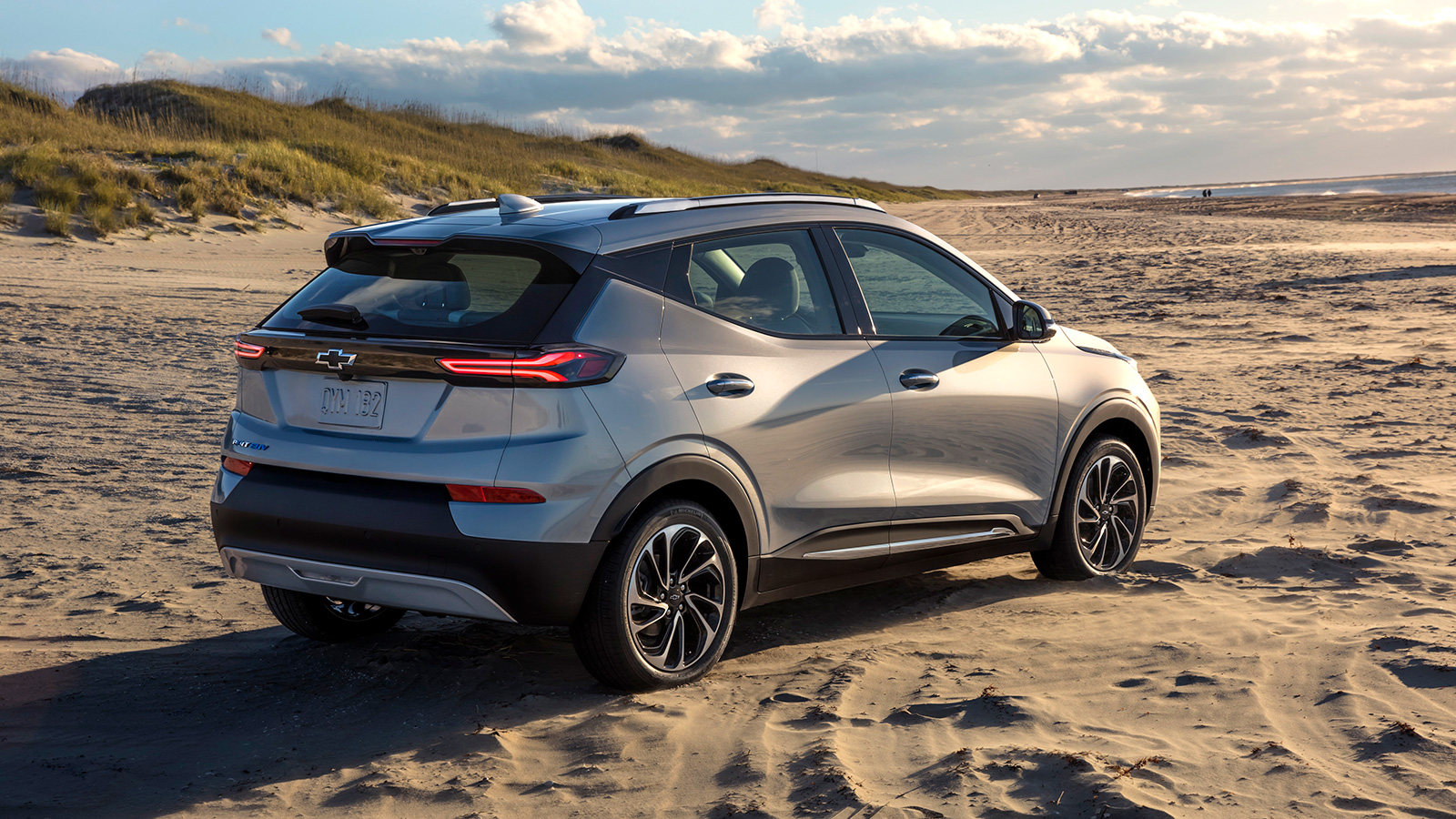The Chevrolet Bolt's No-Good, Very-Bad Year Is Going From Bad To Worse
The planned production restart will not happen until 2022, while GM has issued a software update for owners that addresses the fire risk but hampers range.
2021 was far from a banner year for the Chevrolet Bolt. General Motors recalled every single example on the road — an estimated 141,000 vehicles from model years 2017 to 2022 — after 16 of them caught fire. In a few of those cases, the fires happened after "permanent" software updates had been installed on the relevant cars. GM remains committed to replacing battery modules in every Bolt, but until then, the company is hoping another update will at least allow owners to use their vehicles normally in the interim. Well, "normally" with a considerable hit to range.
With the most recent patch announced last week, GM says those with 2019 model year Bolts may once again park inside garages and charge overnight without concern. The manufacturer had recommended against both of those behaviors back in September. This update also reduces maximum battery state of charge to 80 percent so drivers may once again use the vehicle with less than 70 miles of projected range remaining, though of course with overall range significantly curtailed. The 2018 Bolt had an EPA-estimated range of 238 miles on a full charge.
Near-fully charged batteries and deep discharging are two commonalities shared in many of the fires that have occurred to date. GM has played around with charging limits in the past to address these issues, and previously advised owners to limit maximum state of charge to 90 percent. This latest measure goes even further, though.
Additionally, the new software includes new diagnostic functions that may help detect and impede thermal runaway events that lead to fires before they start, according to Car and Driver. The update will reportedly be pushed to Bolts of other model years over the next month.
Software can — emphasis on can — be very effective in keeping defective lithium-ion batteries in check, as engineer Adam Tallman told us back in the spring:
Limiting the SOC and modifying the charging rates through a software fix can prevent the growth of dendrites if you get the new calibrations right. What a software fix cannot do is get rid of dendrites that have already formed and are, for lack of a better term, a ticking time bomb.
However, GM's measures thus far haven't cut it, forcing it to eventually concede and go the full battery replacement route to the tune of $2 billion. By the way, $1.9 billion of that is coming out of battery supplier LG's pocket.
That brings us to the other bit of news in the ongoing Bolt saga. With GM focused on shifting new batteries to cars currently on the road, the Bolt assembly line at its Lake Orion plant has been mostly dormant since late August. The company projected that production would resume in December, but now has pushed that date back to early 2022 to continue prioritizing repairs and bide its time until some supply chain bottlenecks ease up. From The Detroit News:
"GM has notified employees at Orion Assembly the plant will take downtime for the remainder of the 2021 calendar year," GM spokesman Dan Flores said in a statement. "This decision will enable us to continue prioritizing recall repairs. We will continue to inform employees at the appropriate time of any additional production schedule adjustments in early 2022, as we continue to focus on battery module replacements."
It's yet another sad chapter in the sad book that is the Chevrolet Bolt. I'll give GM credit for biting the bullet and swapping out everyone's batteries, but customers have their hands tied while they wait. The most prudent remedy is to trade range for safety, but then of course owners aren't getting what they paid for, and it's not like they can easily sell the damn things if they're not lucky enough to get a buyback. Nobody wants to buy a car that at best performs below its manufacturer-claimed targets, or at worst is a fire hazard. Maybe it's for the best that most EV buyers apparently don't know the Bolt exists.
